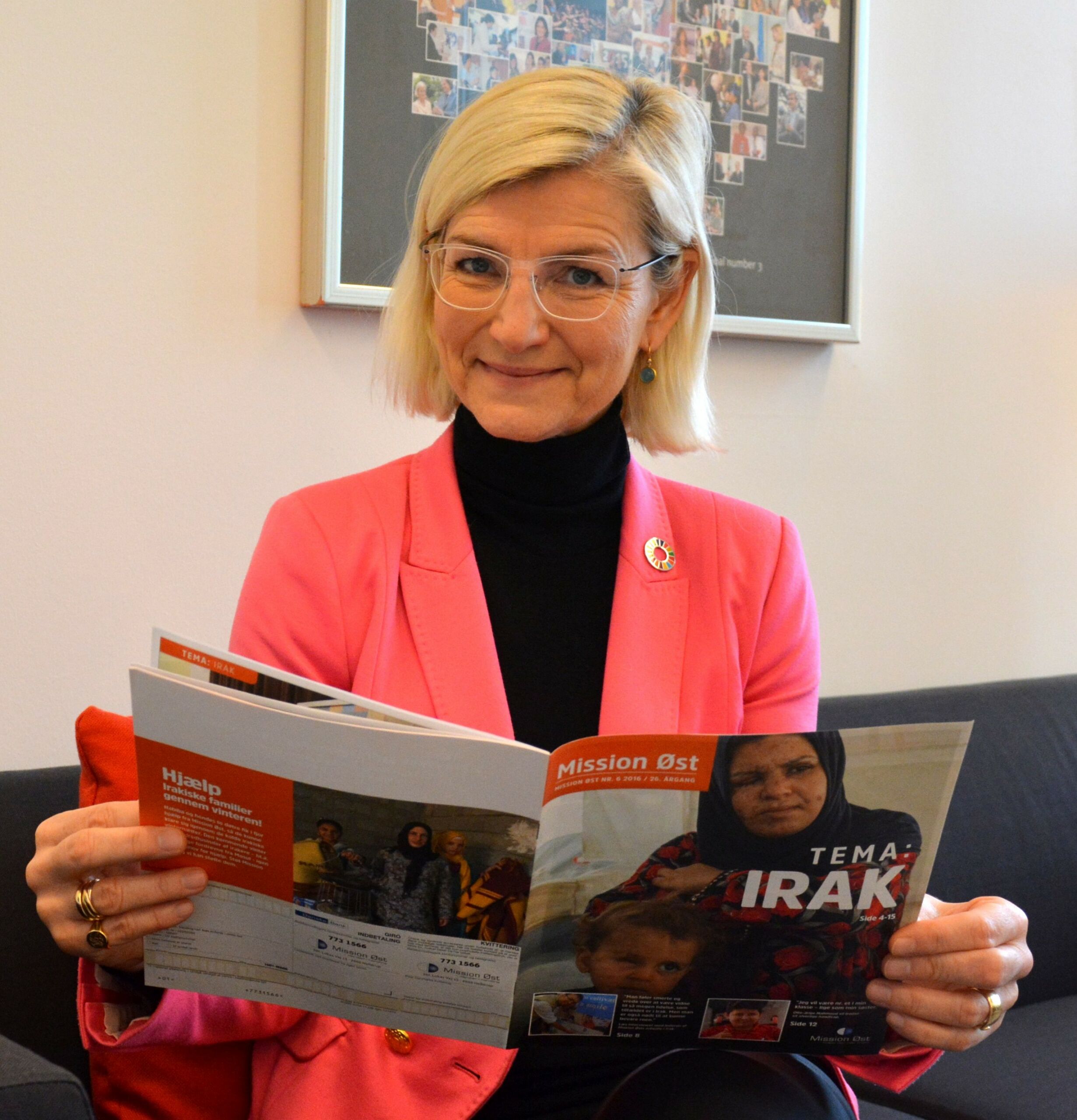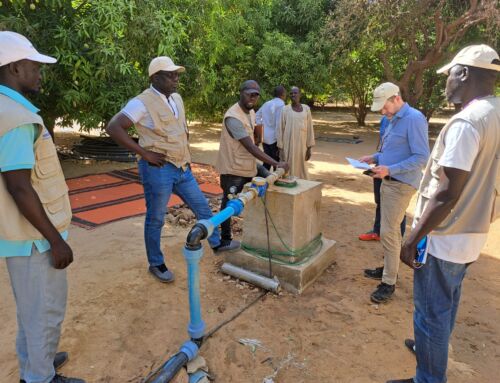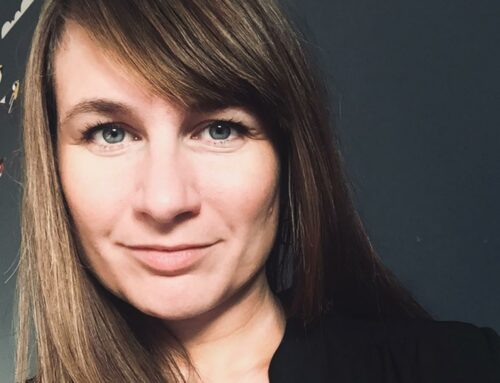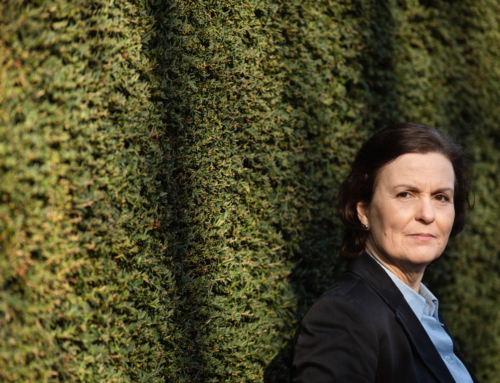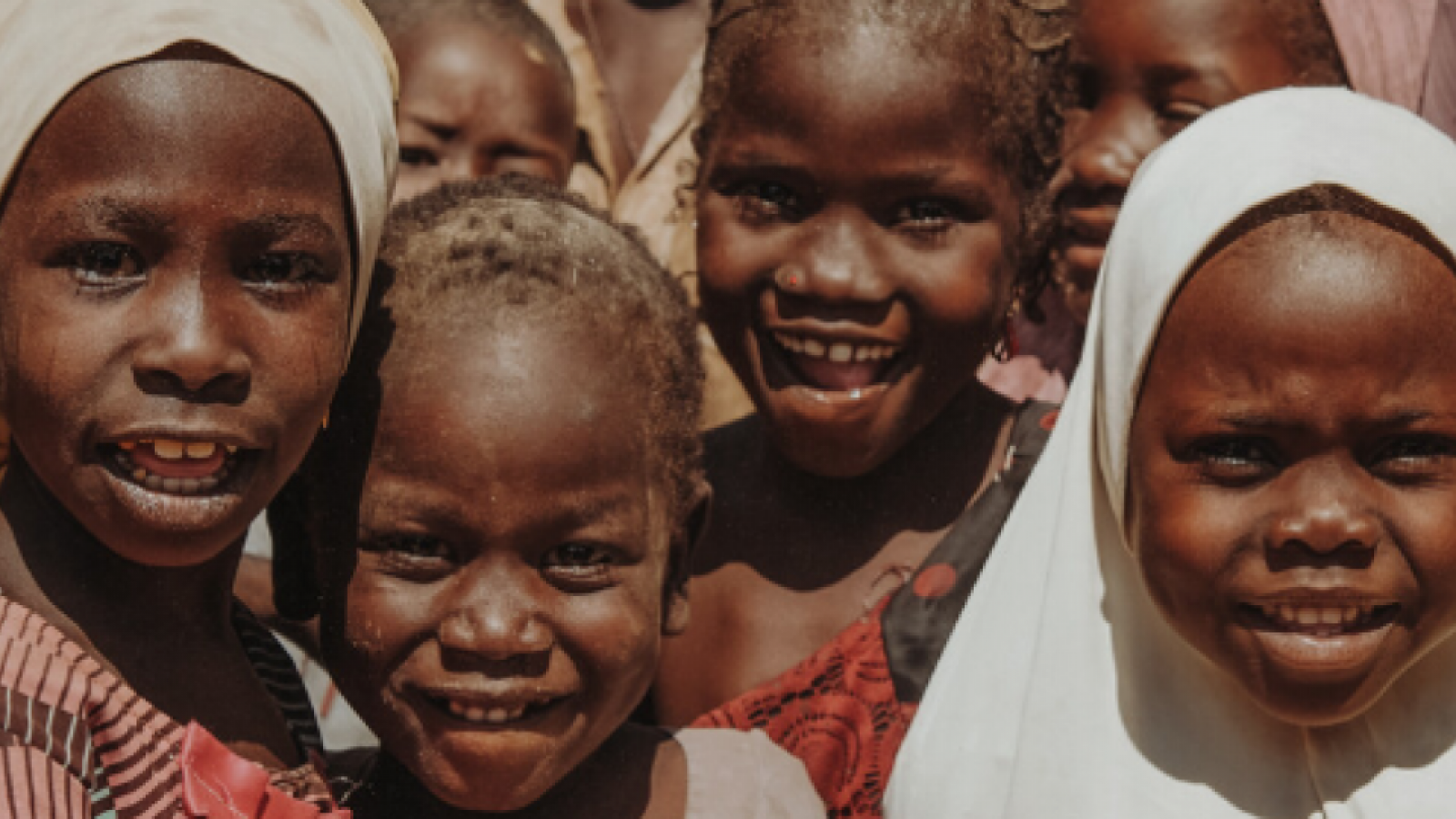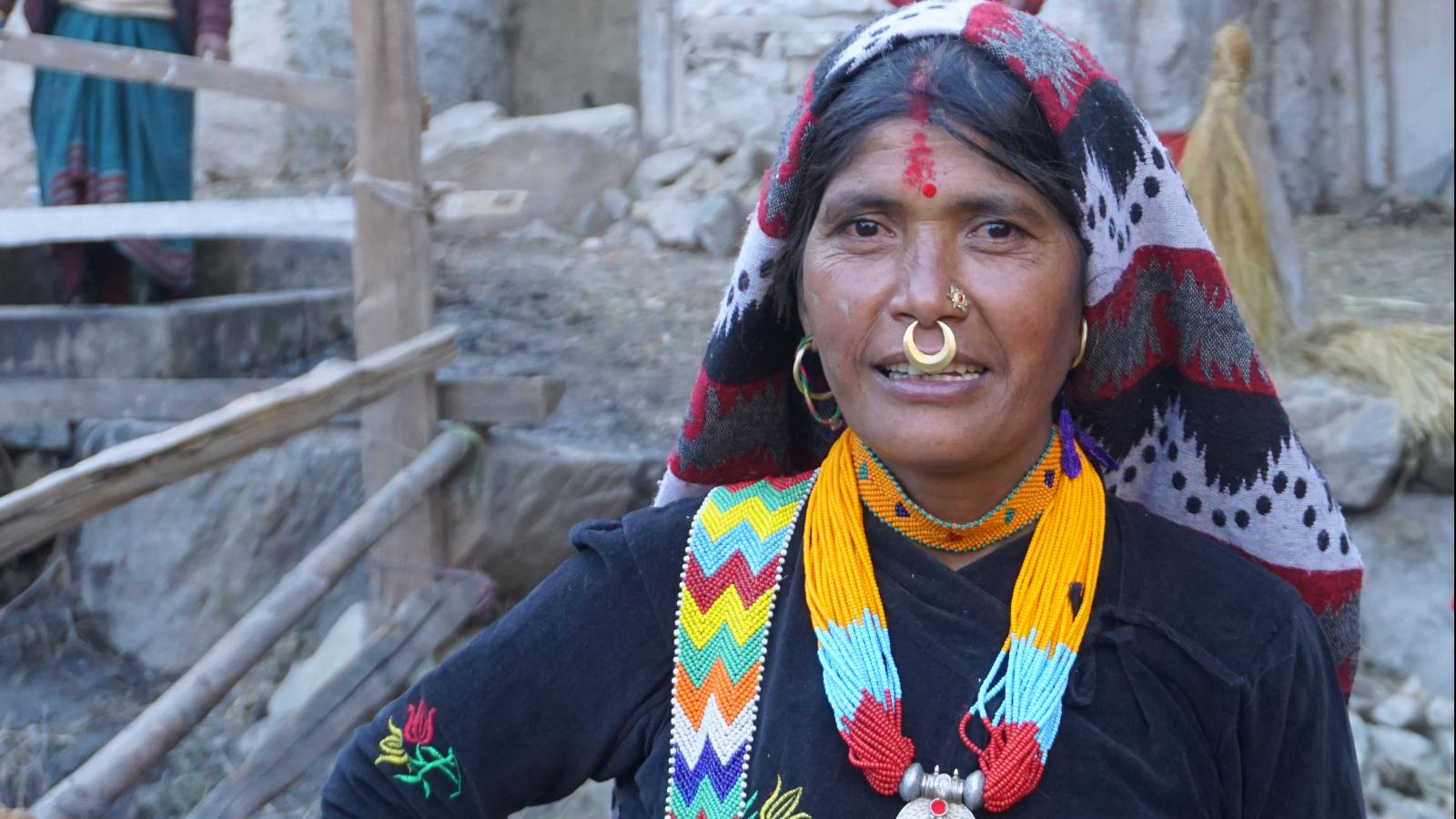Through local knowledge and know-how, organisations like Mission East can gain better access to some areas than government representatives. In turn, the Danish authorities can contribute financially. According to the Minister for Development Cooperation, Ulla Tørnæs, this is a unique form of cooperation.By Svend Løbner, Journalist
Cooperation between government and aid organisations is an absolute ’must’ if we are to alleviate distress in the world, the Minister for Development Cooperation, Ulla Tørnæs, said during an interview in her office at the Ministry for Foreign Affairs.
“I have no doubt that NGOs can work in situations where we as authorities and representatives of the state are not able to be present. This is exactly what is so beautiful about partnerships,” Ulla Tørnæs said.
A current example of this is Mission East’s aid efforts in the conflict-ridden Iraqi city of Mosul. “We cannot be there,” the minister noted and added that “where we cannot be present ourselves, we can make a difference through our partners.”
From aid to cooperation
Ulla Tørnæs became Minister for Development Cooperation in the tripartite coalition government led by Lars Løkke Rasmussen on 28 November 2016. She was also development minister from 2005 till 2010, but then her title was ‘minister for development aid’. This minor difference is quite significant, she said:
“My job title is an expression of a shift in attitude. Previously, it was a matter of tax-financed development aid, non-repayable aid from the north to the south. The Millennium Development Goals were about this. The global goals (the UN Sustainable Development Goals) are about global partnerships, about cooperation. No-one can lift this task by themselves, and it cannot be solved through development aid alone. We need to cooperate and create partnerships, and the NGOs play a huge role in this.”
Take a look at the world
Ulla Tørnæs explained what motivates her:
“What is happening all over the world, also affects Denmark. The world has become smaller due to globalisation and the development of information technology. I feel very privileged to be part of Danish society, and I therefore wish to ensure that I pass on a good and safe country to my children and grandchildren. To do that, one needs to be aware of what is happening in the world. There are some obvious issues that we need to address and contribute to solving. Obviously, one of those is poverty. For various reasons, millions of people do not have the same opportunities as I have. I would like to ensure that they get basic rights and better opportunities.”
Even though global poverty has been halved over a couple of decades, Ulla Tørnæs stressed that there are still “many big issues, they concern a lack of political leadership in many countries, they concern women and a lack of respect for human rights. These rights obviously apply to women as well.”
Women increase wealth
The women’s question is an area that Ulla Tørnæs is particularly passionate about: “When I talk to women in developing countries, I feel completely outraged when they tell me about the conditions they live under. Many of them do not have the right to control of their own bodies, which means that they do not have the right to decide whom they have sex with, and when they have sex. This means that they cannot decide when to have children, with whom, and how many children.”
Discrimination against women has a negative effect on development: “Research shows that we can increase global wealth by 25 per cent, if women have the same rights as men. This is about the right to decide how many children you have, but also about the right to own land, have a bank account, etc.”
A refugee is a refugee for 17 years
In its manifesto, the tripartite government gives priority to strengthening relief efforts in neighbouring areas of crisis and conflict. The question is whether humanitarian efforts in such areas in places like the Middle East may be detrimental to long term development in other countries. Ulla Tørnæs does not think so:
“Development cooperation is a matter of priorities, as we cannot be present everywhere. But it is important to stress that our work in neighbouring areas of crisis and conflict is not only a short-term effort. On average, a refugee remains a refugee for 17 years, and we have to take this into account. If you are a refugee for 17 years, there is a need for some long-term initiatives, such as education, job training and employment opportunities.”
—————————————————————————–
A joint effort for a better world
Millennium Goals: In the year 2000, the 192 member states of the UN decided on eight specific goals to be achieved by developing countries by 2015. It was the first time in history that so many countries joined forces to eradicate hunger, poverty and discrimination. When the goals were evaluated in 2015, it turned out that the effort had been a big success.
Global Goals: In September 2015, the new Sustainable Development Goals were adopted by UN member states. They are to be achieved by 2030. Contrary to the Millennium Goals, the new goals apply to all countries. It is thus not only governments in developing nations that commit themselves to working for gender equality and quality education, but also counties like the USA and Denmark. Read more here: http://www.un.org/sustainabledevelopment/
The Danish strategy: In January 2017, the Danish government adopted a new strategy for development cooperation and humanitarian action. Previously, the two areas each had their own strategy, but relief and development work is becoming more and more interconnected, hence the decision to develop a unified strategy. It is based on the UN SDGs, but also focuses on relief to neighbouring areas of crisis and conflict.

